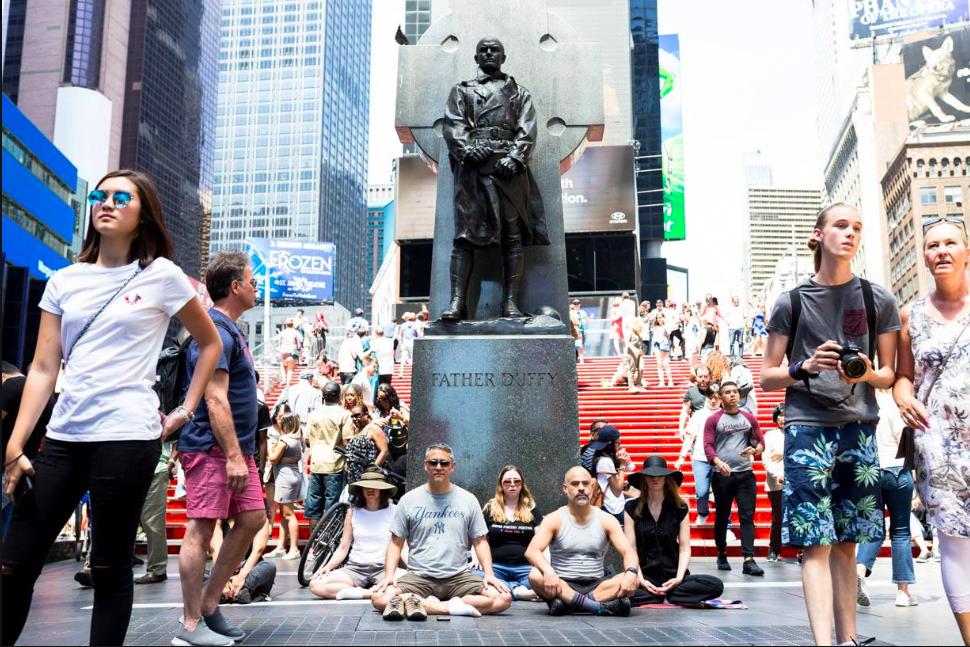Pema Chodron’s writing is amazing because of her ability to communicate brilliant and insightful aspects of human nature in an extraordinarily plain and accessible way. The following is an excerpt from opening of Pema Chodron’s book, Start Where You Are:
“WE ALREADY HAVE EVERYTHING WE NEED. There is no need for self-improvement. All these trips that we lay on ourselves– the heavy-duty fearing that we’re bad and hoping that we’re good, the identities that we so dearly cling to, the rage, the jealousy and the addictions of all kinds– never touch our basic wealth. They are like clouds that temporarily block the sun. But all the time our warmth and brilliance are right here. This is who we really are. We are one blink of an eye away from being fully awake.
Looking at ourselves this way is very different from our usual habit. From this perspective we don’t need to change: you can feel as wretched as you like, and you’re still a good candidate for enlightenment. You can feel like the world’s most hopeless basket case, but that feeling is your wealth, not something to be thrown out or improved upon. There’s a richness to all of the smelly stuff that we so dislike and so little desire. the delightful things- what we love so dearly about ourselves, the places in which we feel some sense of pride or inspiration– these also are our wealth.
With the practices presented in [Start Where You Are], you can start just where you are. If you’re feeling angry, poverty-stricken, or depressed, the practices described here were designed for you, because they will encourage you to use all the unwanted things in your life as the means for awakening compassion for yourself and others. These practices show us how to accept ourselves, how to relate directly with suffering, how to stop running away from the painful aspects of our lives. They show us how to work openheartedly with life just as it is.
When we hear about compassion, it naturally brings up working with others, caring for others. The reason we’re often not there for others– whether for our child or our mother or someone who is insulting us or someone who frightens us–is that we’re not there for ourselves. There are whole parts of ourselves that are so unwanted that whenever they begin to come up we run away.
Because we escape, we keep missing being right here, being right on the dot. We keep missing the moment we’re in. Yet if we can experience the moment we’re in, we discover that it is unique, precious, and completely fresh. It never happens twice. One can appreciate and celebrate each moment– there’s nothing more sacred. There’s nothing more vast or absolute. In fact, there’s nothing more!
Only to the degree that we’ve gotten to know our personal pain, only to the degree that we’ve related with pain at all, will we be fearless enough, brave enough, and enough of a warrior to be willing to feel the pain of others. To that degree we will be able to take on the pain of others because we will have discovered that their pain and our own pain are not different.
However, to do this, we need all the help we can get. It is my hope that this book will supply that help. The tools you will be given are three very supportive practices:
1. Basic sitting meditation (called shamatha-vipashyana meditation).
2.The practice of taking in and sending out (called tonglen).
3. The practice of working with slogans (called the seven points of mind training, or lojong).
All these practices awaken our trust that the wisdom and compassion that we need are already within us. They help us to know ourselves: our rough parts and our smooth parts, our passion, aggression, ignorance, and wisdom. The reason that people harm other people, the reason that the planet is polluted and people and animals are not doing so well these days is that individuals don’t know or trust or love themselves enough. The technique of sitting meditation called shamatha-vipashyana (“tranquillity-insight”) is like a golden key that helps us to know ourselves.”
Get the book at Amazon: http://www.amazon.com/Start-Where-You-Are-Compassionate/dp/1570628394


